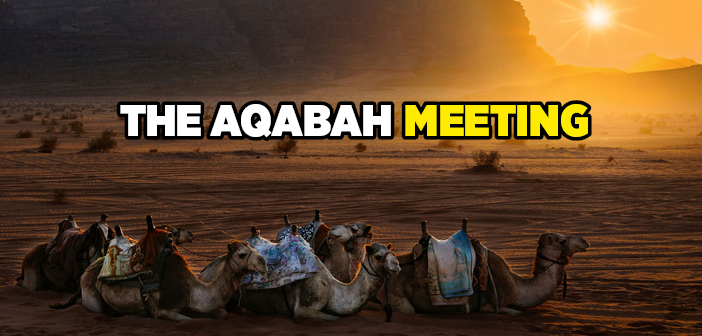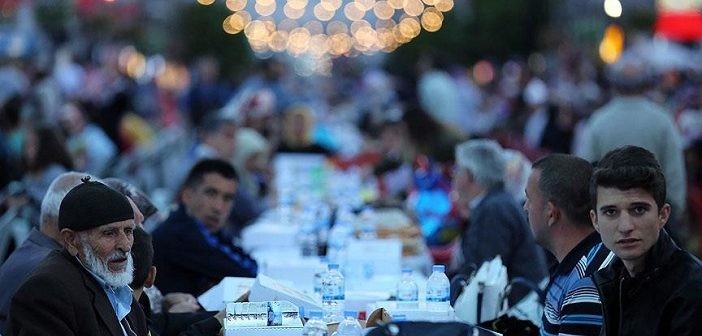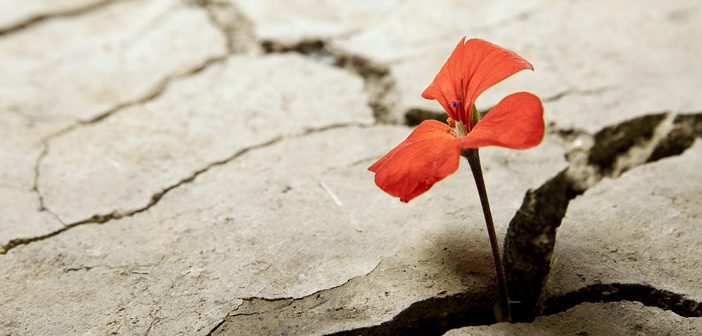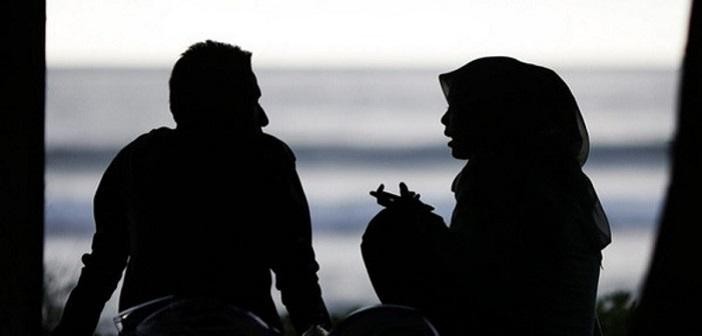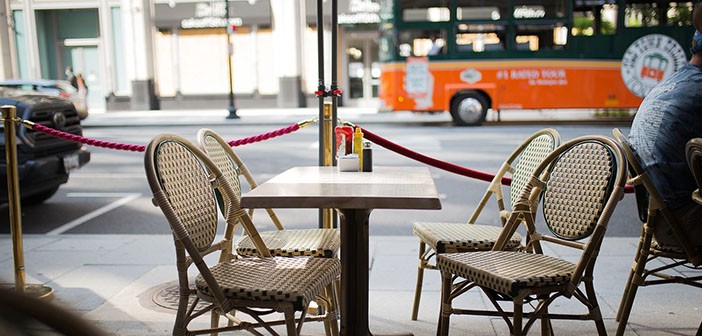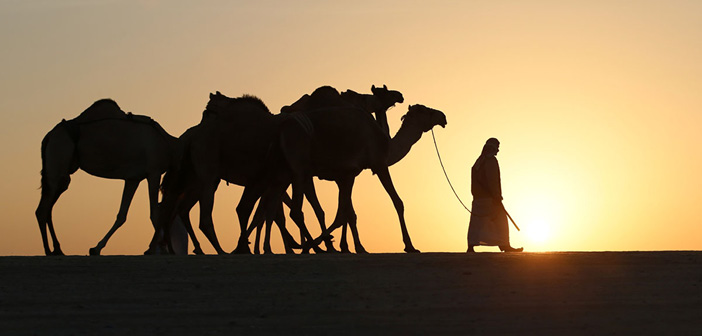
The First Aqabah Pledge
The twelfth and thirteenth years of prophethood- the first aqabah pledge
The six Medinans who had embraced Islam during their trip to Mecca the previous year turned up again a year later, with another six by their side. Aqabah once again served as the meeting spot.
The Messenger of Allah -upon him blessings and peace- invited the six newcomers to tawhid. Having already heard from their friends of the beauty and greatness of Islam and the nobility of the Prophet -upon him blessings and peace-, they too embraced the faith.
Unlike the first meeting, this time the visitors formally pledged allegiance to the Prophet -upon him blessings and peace-. Clasping the hand of the Messenger of Allah -upon him blessings and peace-, the Medinans gave their first vows, for which reason this meeting has come to be known as the First Aqabah Pledge.
The Medinans pledged the following:
- Not to ascribe any partner to Allah, glory unto Him, under any condition.
- Not to steal.
- Not to even approach fornication.
- Not to bury their daughters alive.
- Not to slander.
- To obey Allah and His Messenger. (Bukhari, Manaqib’ul-Ansar, 43)
A vow to rid the entire Arabian peninsula of idolatry, oppression and the evil practices rampant at the time, the Medinans’ first pledge is thus a turning point in the history of Islam.
The Appointment of Musab ibn Umayr as Teacher and the Conquest of Medina through the Quran
The new Muslims of Medina wrote a letter to the Prophet -upon him blessings and peace-, asking him to send them a teacher to explain Islam to them, teach them the Quran and lead them in salat. So the Prophet -upon him blessings and peace- sent Musab –Allah be well-pleased with him-.[1]
To teach Medinans the Quran, the Messenger of Allah -upon him blessings and peace- had also sent Abdullah Ibn Ummi Maktum –Allah be well-pleased with him-, one of the first believers along with Musab ibn Umayr –Allah be well-pleased with him-.[2]
Musab ibn Umayr –Allah be well-pleased with him- had embraced the guiding light at a very young age, holding firm to his belief despite the tyranny of his family who went so far as to deprive him of his inheritance. Though outwardly he may have been left poor and deserted, inwardly, he had a rich heart filled with the love and delight of iman. In spreading Islam, he was like a pillar of passion.[3]
Indeed, the coming of Musab –Allah be well-pleased with him- to Medina marked the beginning of the blooming of Islam in the town. Entrusted by the Prophet -upon him blessings and peace- with the duty of communicating Islam, the young companion began working night and day to explain to people the word of the Almighty. His host and main helper was Asad ibn Zurara –Allah be well-pleased with him-, one of the fortunate first to be guided through the efforts of Musab –Allah be well-pleased with him-.
On one instance with Musab by his side, Asad went and sat by the well at the garden belonging to the Zafar clan. Saad ibn Muadh, a notable from the family of Abdul’Ashal, took the opportunity to voice his displeasure to Usayd ibn Hudayr:
“You are a man who knows what to do. You do not need anyone helping you. Go and tell those men, who have come to our neighborhood to corrupt the faith of the weak men among us, to leave and never come back! I would have done it myself only if Asad had not been my relative.”
Fired up, Usayd quickly went to the two men with a spear and vented his anger.
“What are you doing here? Have you brought this man next to you, Asad, to corrupt the faith of the weak among us? If you wish to live, leave now and don’t turn back!”
A prudent man, Musab –Allah be well-pleased with him- kept his nerve and asked:
“Will you not sit awhile and listen to what I have to say? You look like an intelligent man…If you like my words you will accept, and if not you won’t.”
“Quickly say what you have to say”, answered Usayd. Thrusting his spear into the ground, he sat down. Musab –Allah be well-pleased with him- explained Islam to him, reciting some Quran.
As soon as he heard the recital of the Quran, before he could even speak, Usayd’s face became lit with the light of Islam and his heart melted to the truth.
“What marvelous words…[4] What does one who wants to enter this religion do?” he asked.
On the instruction of Musab and Asad -Allah be well-pleased with them-, Usayd washed himself and his clothes and then pronounced the shahadah. After performing two rakats of salat, he said:
“There is one man I have left behind. If he accepts your words everybody will follow in his wake. His name is Saad ibn Muadh. I will send him to you at once!”
Before long, Saad came hastily next to them. But he too, like Usayd, ended up embracing Islam after hearing Musab talk. Afterwards, he returned to his people:
“Sons of Abdul’Ashal! How have you known me until now?”
“As our leader and our wisest”, they replied.
“Then know that I will not speak to any men or women among you until you believe in Allah and His Messenger!”
By night, not a single person was left in the clan who had not become Muslim. (Ibn Hisham, II, 43-46; Ibn Saad, III, 604-605; Ibn Athir, Usd’ul-Ghabah, I, 112-113)
Musab –Allah be well-pleased with him- then went on to invite Amr ibn Jamuh, a notable from the clan of Salima, reading to him the first eight ayah of chapter Yusuf. Though he asked for time to think it over, Amr could not make up his mind. Thereupon with a few youngsters from his tribe helping him, Amr’s son Muadh, who had already become a Muslim, one night secretly grabbed his father’s idol and threw it in a nearby filth hole. Horrified next morning at seeing his idol thrown in a pile of dirt, Amr took it out of there, and after giving it a thorough cleaning with beautiful scents, put the idol back in its place.
After the same incident repeated itself over a few nights, Amr hung his sword on the idol’s neck for it to protect itself. But seeing the idol once again in a pile of dirt the morning after, he finally realized that the lifeless object he had been worshipping for so long could not even protect itself, let alone be of any benefit to another, making him open his eyes to the morning of Islam from the twilight of idolatry. He thanked the Almighty for saving him through the Noble Prophet -upon him blessings and peace- from the darkness he had been in and took active part thereafter in inviting his people to Islam.[5]
The news of the delightful reception of Islam in Medina put the Muslims of Mecca and the Prophet -upon him blessings and peace- in such high spirits that the year came to be known as the Year of Joy. Medina was now becoming ready to become the cradle of Islam.
Of this, the Messenger of Allah -upon him blessings and peace- has said:
“Lands are conquered with swords…but Medina was conquered with the Quran.” (Bazzar, Musnad, 1180; Rudani, 3774)
“We were sitting with the Messenger of Allah -upon him blessings and peace- at the Masjid. Musab then arrived, wearing nothing but a mantle patched all over with pieces of wool. Seeing him reminded the Messenger of Allah -upon him blessings and peace- of Musab’s prosperous days in Mecca; and witnessing his current condition reduced the Messenger of Allah -upon him blessings and peace- to tears. He then said:
‘What will become of you when you will wear one beautiful garment in the morning, another in the afternoon, when you will be served with one full plate after another, when you will adorn your houses with drapes just like the Kaabah is draped!’
‘Most certainly, Messenger of Allah, our condition then will be much better than it is now’ they said. ‘For then we will not have to worry about our livelihood and be able to commit ourselves entirely to worship’.
‘Quite the reverse…You are in a much better position now than you will be then’, the Messenger of Allah -upon him blessings and peace- stated.” (Tirmidhi, Qiyamat, 35/2476)
“I was reading Chapter Baqarah one night. My horse was next to me, tied. But at one stage the horse began to rear up. I stopped reading and the horse calmed down. I continued to read, but again, the horse began to rear up excitedly as I read. Fearing he might be trampled under the horse’s hooves, I was forced to bring my little son Yahya closer to me. But then I looked up to the sky and saw spots that looked like lamps, which after a while, rose further up into the sky and disappeared from sight. In the morning, I told the Messenger of Allah -upon him blessings and peace- of the experience.
‘Read Usayd, read,’ he said to me before asking, ‘Do you know, Usayd, what those things were that you saw?’
‘No’, I replied.
‘They were angels who had come to listen to your recital of the Quran. Had you continued reading, they would have listened to you until daybreak. They would not have remained secret to other people either, who would have been able to see them freely.’” (Bukhari, Fadail’ul-Quran, 15)
Aisha –Allah be well-pleased with her- recounts:
“Usayd ibn Hudayr –Allah be well-pleased with him- was one of the most virtuous Companions. I remember, he used to continually say:
‘Had I been able to continuously sustain the state of mind that overtook me in either one of these three moments, I surely would have been Paradise bound: while reading the Quran or listening to someone read it, while listening to the talks of the Messenger of Allah -upon him blessings and peace- and while seeing a funeral. Yes indeed…whenever I see a funeral, I feel like it is me experiencing the things the deceased is going through, taken to where the deceased is being taken.” (Hakim, III, 326/5260)
[1] Ibn Saad, I, 220.
[2] Bukhari, Manaqıbu’l-Ansâr, 46.
[3] Ali –Allah be well-pleased with him- explains:
[4] Usayd –Allah be well-pleased with him- never ceased to recite the Divine Words, the beauty of which he recognized the very first moment, with the same love and enthusiasm throughout his life. He himself explains:
[5] Ibn Hisham, II, 61-63; Dhahabî, Siyar, I, 182.
Source: Osman Nuri Topbaş, The Prophet Muhammed Mustafa the Elect, Erkam Publications
SIMILAR ARTICLES
- WHAT IS ISLAM?
- THE FAMILY TREE OF PROPHET MUHAMMAD SAW
- NOTIFICATION TO VARIOUS TRIBES AND INVITING THEM TO ISLAMWHAT IS FIQH IN ISLAM
- FREE ISLAMIC BOOKS READ AND DOWNLOAD PDF
- THE AQABAH MEETING
THE AQABAH MEETING
